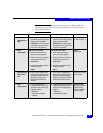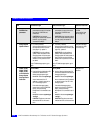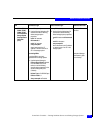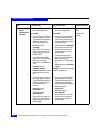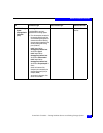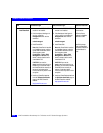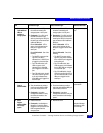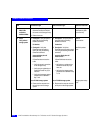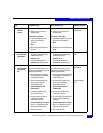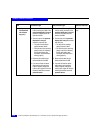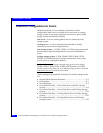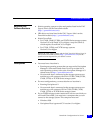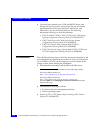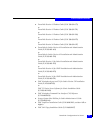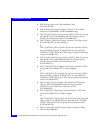
PowerPath Checklist — Existing NetWare Server and Existing Storage System
4-37
NetWare Installation Checklists
15 Server
Remount
volumes
If the server is
not
in a cluster
❑
Remount the volumes on the
storage system.
If the server is
not
in
a cluster
❑
Remount the volumes on the
storage system.
NetWare
documentation
If the server is in a cluster
❑
Load cluster software on the
server with the following
command:
ldncs
If the server is in a cluster
❑
Load cluster software on the server
with the following command:
ldncs
❑
Move cluster resources back to
the server.
❑
Move cluster resources back to the
server.
16 Server
Save PowerPath
configuration
❑
Save the server’s PowerPath
configuration with the following
PowerPath command:
powermt -save
This command creates the
powermt.ctm configuration file.
❑
Save the server’s PowerPath
configuration with the following
PowerPath command:
powermt -save
This command creates the
powermt.ctm configuration file.
PowerPath product
guide
17 Server
Test PowerPath
with a license
key
If you have a PowerPath license key
If your PowerPath license key is not
registered, the load balancing policy is
restricted to basic failover.
❑
Stop all applications accessing
the storage system and disable
user logins to the server.
If you have a PowerPath license key
If your PowerPath license key is not
registered, the load balancing policy is
restricted to basic failover.
❑
Stop all applications accessing the
storage system and disable user
logins to the server.
NetWare
documentation
❑
View the LUNs available to the
server using the following
PowerPath command:
powermt display dev=all
class=clariion
❑
View the LUNs available to the
server using the following
PowerPath command:
powermt display dev=all
class=clariion
PowerPath product
guide
❑
Choose one available LUN to
receive I/O for the test.
❑
Choose one available LUN to
receive I/O for the test.
❑
View the paths to the chosen
LUN using the following
PowerPath command:
powermt display dev=
x
every=2
where
x
is a pseudo device that
represents the chosen LUN.
❑
View the paths to the chosen LUN
using the following PowerPath
command:
powermt display dev=
x
every=2
where
x
is a pseudo device that
represents the chosen LUN.
❑
Start I/O to the LUN.
❑
Start I/O to the LUN.
Task
With Access Logix Without Access Logix Reference Document



